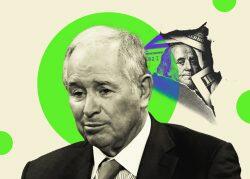Talk about some dry powder.
Blackstone announced on Tuesday the close of Blackstone Real Estate Partners X, its latest in a series of global real estate investment funds. The fund has a staggering $30.4 billion of capital commitments, which the firm declared the “largest real estate or private equity drawdown fund ever raised.”
The previous record for a private-equity real estate investment vehicle was its predecessor, Blackstone Real Estate Partners IX. That fund was capped in 2019 at $20.5 billion.
Blackstone was tracking towards its $30 billion goal a year ago, when a regulatory filing noted it had raised $24.1 billion for the opportunistic real estate fund. At that time, Blackstone projected having $30.3 billion in commitments, a mark it exceeded by $100 million.
Combined with opportunistic funds from Asia and Europe, Blackstone now boasts $50 billion of capital commitments. The real estate world will be watching closely what Blackstone does with all of that money.
Years before the pandemic, Blackstone shifted its focus away from offices and malls. Logistics, rental housing, hospitality, lab office and data centers make up approximately 80 percent of Blackstone Real Estate’s investments. (Blackstone Real Estate is a business within the firm.)
In a statement, Blackstone Real Estate global co-head Ken Caplan noted some of the firm’s best investments came in “periods characterized by the market volatility and dislocation,” an apt way to describe today’s commercial real estate market.
Since its founding more than 30 years ago, Blackstone has accumulated $326 billion of investor capital under management. It reports having delivered a net internal rate of return of 16 percent on its global real estate funds.
Blackstone’s profits fell in the fourth quarter as the value of its real estate dropped. Part of the firm’s difficulties stemmed from its real estate investment trust, BREIT, which was forced to limit withdrawals after a rash of redemption requests. It regained some of its footing with a $4.5 billion cumulative investment from the University of California.
Correction: This article has been revised to reflect that Blackstone shifted its real estate strategy years before the pandemic, not during it.
Read more


